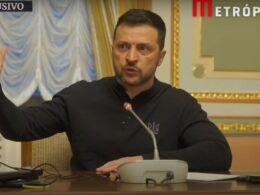The G7 leaders will tighten restrictions on Russian oil, metal, and energy, according to a statement seen by Bloomberg.
Earlier, the West introduced a price cap on Russian crude oil and petroleum products that banned shipowners, insurers, and intermediaries from providing vessels and services for cargoes priced above the thresholds.
However, Moscow has been able to circumvent the cap by establishing a fleet of tankers in difficult-to-trace jurisdictions and turning to non-western providers to ship its products to new markets.
“We will continue to apply significant pressure on Russian revenues from energy and other commodities,” said the G7 statement.
According to the document, the G7 leaders will take stronger actions to hinder the growth of future energy projects and disrupt access to necessary goods and services for those projects. They will also keep working to decrease Russia's profits from metal exports.
Additionally, the G7 members will introduce a strategy for energy infrastructure and food security in Africa. They will commit to helping create a fund for low-income countries to quickly provide financial help during serious food shortages, with contributions expected from global insurance markets.
On 13 June, G7 members agreed to a US proposal to support a $50 billion loan to Ukraine, secured by frozen Russian assets. Most of these assets are held within the European Union.
AP: G7 leaders agree to lend Ukraine billions in Russia’s frozen assets
The US and French officials who confirmed the agreement before a formal announcement said the money could reach Kyiv in 2024.
Read more:
- Ukraine signs security pact with Sweden, securing €6.5 bn
- Zelenskyy to sign three security agreements in Stockholm today
- Lisbon pledges €126 mn defense assistance in security pact with Kyiv
- Ukraine and Belgium ink bilateral security and long-term support agreement




